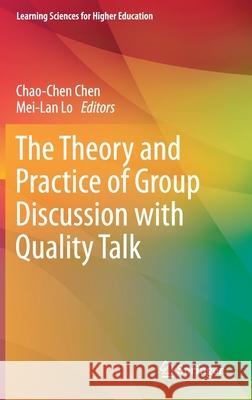The Theory and Practice of Group Discussion with Quality Talk » książka
topmenu
The Theory and Practice of Group Discussion with Quality Talk
ISBN-13: 9789811614088 / Angielski / Twarda / 2021 / 156 str.
Kategorie:
Kategorie BISAC:
Wydawca:
Springer
Seria wydawnicza:
Język:
Angielski
ISBN-13:
9789811614088
Rok wydania:
2021
Wydanie:
2021
Numer serii:
001202556
Ilość stron:
156
Waga:
0.41 kg
Wymiary:
23.39 x 15.6 x 1.12
Oprawa:
Twarda
Wolumenów:
01
Dodatkowe informacje:
Wydanie ilustrowane











